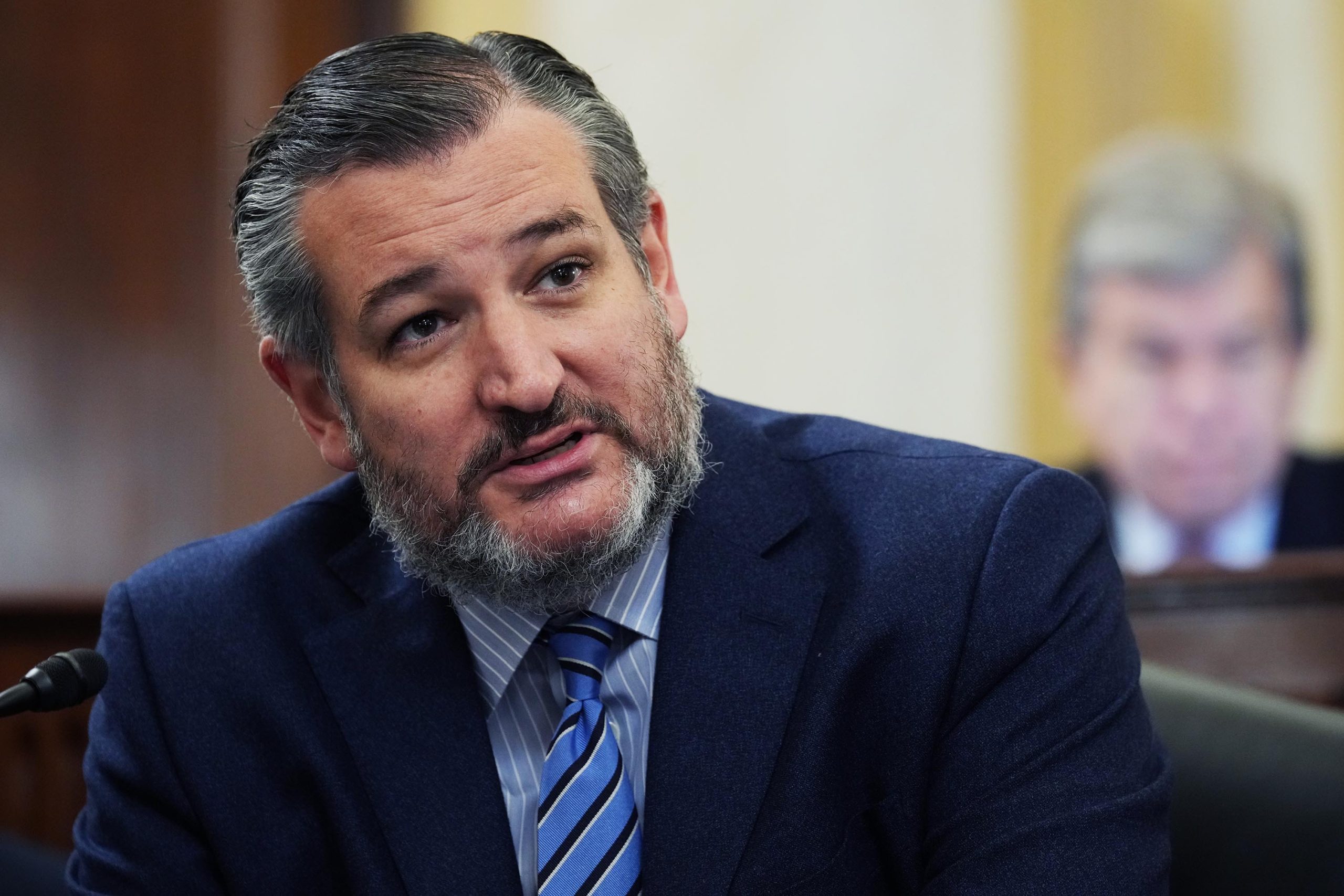News
NDITDA Bill Must Not Destroy the New Oil Well, Tech

By Joel Popoola
In tech terms, 2007 was a thousand years ago.
YouTube was a little over a year old. Instagram and Snapchat didn’t exist. TikTok wouldn’t go international for another decade.
That’s why it’s only sensible that we update out technology laws to reflect the Nigeria we live in now.
But this regulatory refresh must not come at the expense of our economic future.
This week has brought news that the National Information Technology Development Agency is apparently seeking to extend powers granted in 2007 to provide the Nigerian tech sector with advisory guidelines to a fully-fledged regulator with the powers to determine which businesses are allowed to operate.
Under the proposals, companies would also have to pay a 1% levy on their profits to NITDA. Companies failing to comply with the rules would risk jail time or minimum fines of 30 million naira.
In the aftermath of the government’s banning of both cryptocurrency and Twitter, insiders fear the move may have the effect of hindering innovation in Africa’s fastest growing tech ecosystem.
This must not be allowed to happen.
Tech is a sector which has defied the stagnant economy which has defined Nigeria in recent years. The internationally-renowned Financial Times recently branded Nigeria “Africa’s hottest start-up scene”. Of every five dollars invested in venture capital funding in Africa in 2020, one dollar went to Nigeria. In Flutterswitch and Intersave our nation is home to two of Africa’s four unicorns- companies valued at over $1billion. Investors poured $1.6billion into the Nigerian tech scene between 2016 and 2020.
It is this reason why tech’s role in the Nigerian economy has been called “the new oil”. And as the world adapts to a post-oil future, it’s something which is only going to become more and more critical. We must not intentionally destroy the new oil’s well.
As the Financial Times writes, the Nigerian government’s “byzantine structure, endemic corruption and penchant for free speech crackdowns” already inhibits innovation and discourages investment. Heavy handed regulation will only encourage investors and businesses to look elsewhere.
Fintech – digital banking – is one of the most significant divers of the Nigerian tech boom, and in a nation where 60 million people do not have a bank account and where 96% of transactions still take place using cash, the sector is only going to expand – democratising money as it does. No-one is seriously suggesting this area should be an unregulated free-for-all. Consumers need to know that they are investing in a reputable and regulated organisation and not a digital pyramid scheme.
Regulation which supports instead of strangling innovation is the key to prosperity. But the Nigerian tech sector has all-too-often found both the NDITA and other governmental bodies remote, inaccessible and even antagonistic.
This approach is symptomatic and symbolic of the digital divide between decision makers and ordinary Nigerians.
At the digital democracy campaign I lead we are trying to bridge that divide with technology.
We have developed a free app called Rate Your Leader to help elected officials better engage with both technology and the people who elect them.
The app allows direct person-to-person communication between verified voters and confirmed local leaders. As a result, Rate Your Leader allows the rapid raising of issues and concerns and the sharing of information, allowing communities to collaborate to make local areas better and helping politicians understand what matters most to the people who elect them. Rate Your Leader’s abuse-proof technology ensures that this communication is always courteous and civil.
Rate Your Leader also lets local people rate politicians for accessibility, transparency and honesty – building trust in both politicians and political institutions.
The Nigerian tech sector is alarmed by the prospect of a bill which seems to give a single agency the power to decide which businesses can operate and which technologies can come to market, and baffled with a bill which seems to entirely contradict the Nigerian Startup Bill, a tech industry–led initiative much better targeted at delivering a more startup-friendly business environment.
As with so many aspects of the Nigerian political landscape, the key to overcoming these concerns is better engagement – engagement that new technology ironically makes it a lot easier to facilitate.
If we are to safeguard a more prosperous future, it is engagement which must take place at the earliest opportunity – and at Rate Your Leader, we are willing to support that engagement in any way we can.
Joel Popoola is a Nigerian tech entrepreneur, digital democracy campaigner and founder of the Rate Your Leader app. He can be reached via @JOPopoola
News
Alleged Defamation: Court Turns Down DSS Request to Arrest Sowore

The Federal High Court in Abuja, on Wednesday, declined a request by the Department of State Services (DSS) to issue a bench warrant for the arrest of activist and publisher of Sahara Reporters, Omoyele Sowore, in his ongoing defamation trial.
Sowore is being prosecuted over comments made on social media in which he allegedly described President Bola Tinubu as a “criminal.”
The Federal government argues the statement contravenes provisions of the Cybercrimes (Prohibition, Prevention, etc.) Amendment Act, 2024, as well as sections of the Criminal Code, and is capable of inciting public disorder.
Director of Public Prosecutions, M. B. Abubakar, told the court that Sowore’s remarks amounted to cyber harassment and criminal defamation under Section 24(1)(b) of the Cybercrimes Act and Sections 59 and 375 of the Criminal Code.
He insisted the activist must be held accountable for using digital platforms to malign the President.
During proceedings, counsel to the DSS, Akinlolu Kehinde, SAN, urged the court to issue a bench warrant, arguing that Sowore had been duly served with the charge and hearing notice but failed to appear.
He described the absence as a clear disregard for judicial authority.
According to Kehinde, allowing such conduct to go unchallenged could undermine the court’s authority — particularly in politically sensitive matters involving state institutions.
He also dismissed a letter submitted by activist Deji Adeyanju seeking an adjournment on Sowore’s behalf, describing it as an attempt to delay the case.
However, presiding Judge, Justice Mohammed Umar, declined the request. He ruled that it would be premature to issue a bench warrant because the second defendant in the matter, X Corporation (formerly Twitter), had not been properly served with the charge sheet.
The judge held that due process in serving all defendants must be completed before any coercive orders can be considered.
Counsel to X Corporation, Christabel Ndiokwelo, confirmed that although her client received the hearing notice, the formal charges had not yet been served.
Counsel to META (Facebook), Tayo Oyetibo (SAN), was also in court.
He aligned with the government’s position, describing Sowore’s absence as deliberate. He also dismissed Sowore’s claims that social media companies were collaborating with the DSS to censor him as “baseless and diversionary.”
Justice Umar adjourned the case to December 2, 2025, for proper arraignment, and directed that fresh hearing notices and charge documents be served on all parties to prevent further delays.
News
CPC: Time to Hold Nigerian Officials Accountable, Says Senator Ted Cruz

Following US President Donald Trump’s designation of Nigeria as a Country of Particular Concern (CPC), US Senator Ted Cruz has declared that the next step is to hold Nigerian officials accountable.
Cruz is championing the Nigeria Religious Freedom Accountability Act of 2025, a bill designed to protect Christians and other religious minorities from widespread persecution in Nigeria.
After the CPC designation, Trump also warned of possible military action in Nigeria if its leaders failed to protect Christians in the country.
Reacting in a post on his official X handle on Tuesday, Senator Cruz said he has been pushing legislation to designate Nigeria as a CPC and to impose sanctions on Nigerian officials responsible for religious persecution.
He thanked President Trump for the designation and for “fighting to stop the murder of Christians in Nigeria.”
According to Cruz, the next step is to hold Nigerian officials accountable, promising to publicly identify them in the coming weeks.
His post reads: “I’ve been pushing legislation to designate Nigeria a CPC and to impose sanctions on the Nigerian officials responsible.
“Thank you to President Trump for his leadership in imposing the designation, and more broadly, for fighting to stop the murder of Christians in Nigeria.
“Now we should take the next step and hold Nigerian officials accountable. I intend to be very explicit about who they are in the coming days and weeks.”
Last weekend, Trump declared Nigeria a “Country of Particular Concern” over alleged killings of Christians.
In a statement posted on his social media platform Truth Social on Friday, Trump said Christianity faces an existential threat in Nigeria, describing the alleged killing as a “mass slaughter.”
“Christianity is facing an existential threat in Nigeria. Thousands of Christians are being killed. Radical Islamists are responsible for this mass slaughter,” he wrote.
The US president added that the United States “cannot stand by while such atrocities are happening” and directed Congressman Riley Moore and House Appropriations Chairman Tom Cole to investigate the matter.
The Nigerian government has repeatedly rejected claims of Christian genocide in the country.
In September, the Federal government described claims of a systematic genocide against Christians as “false, baseless, despicable, and divisive.”
The Minister of Information and National Orientation, Mohammed Idris, said portraying Nigeria’s insecurity as a religious conflict was a gross misrepresentation of reality.
“Portraying Nigeria’s security challenges as a targeted campaign against a single religious group is inaccurate and harmful.
“The federal government strongly condemns and categorically refutes recent allegations by certain international platforms and online influencers suggesting that terrorists operating in Nigeria are engaged in a systematic genocide against Christians,” he said.
Idris stressed that extremists have attacked citizens of all faiths, noting that Muslims, Christians, and even non-religious Nigerians have suffered alike.
Between May 2023 and February 2025, he said, security forces killed over 13,500 terrorists and rescued nearly 10,000 hostages.
He added that the recent capture of top Ansaru leaders and over 700 convictions of Boko Haram suspects reflected Nigeria’s progress in the fight against terrorism.
“These criminals target all who reject their murderous ideology, regardless of faith,” the minister stated.
News
Court Grants PDP Permission to Hold Convention

The Oyo State High Court has granted the Peoples Democratic Party approval to proceed with its elective national convention scheduled for November 15–16, 2025, in Ibadan, the state capital.
The court also directed the Independent National Electoral Commission to attend and monitor the exercise, Channels TV reports.
Delivering the ruling, Justice A. L. Akintola issued an interim order permitting the party to continue its convention plans without obstruction.
The decision came after an ex-parte motion filed by Folahan Adelabi against the PDP, its Acting National Chairman, Umar Damagum; Governor Umaru Fintiri, who heads the National Convention Organising Committee; and the INEC.
In his ruling on Monday, Justice Akintola held that the claimant presented a compelling case that warranted immediate judicial intervention.
“The motion ex-parte has merit and succeeds as prayed,” the judge ruled, granting temporary reliefs that safeguard the party’s schedule and direct all parties to allow the convention to proceed as planned.
The judge subsequently adjourned the hearing of the substantive motion for an interlocutory injunction till November 10, 2025.
The interim order, issued on November 3, 2025, was sealed by the Oyo State High Court and endorsed by its Principal Registrar, S. O. Hammed.






